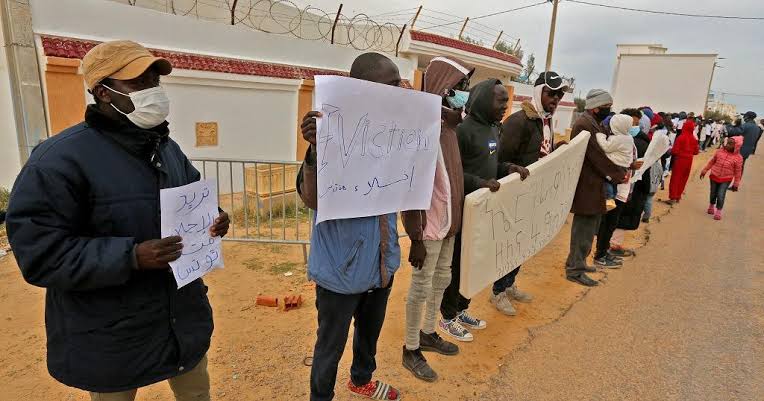
Faith Nyasuguta
Scores of refugees and migrants in Tunisia are decrying racism, bad living conditions and demanding evacuation to other nations.
The refugees, mostly survivors of illegal immigration attempts by sea to Europe, have been staging a sit-in in front of the office of the United Nations High Commissioner for Refugees (UNHCR) in the Tunisian capital, Tunis since Saturday.
“We need to be evacuated,” reads a banner they have hung at the entrance to the building.
The refugees, many of whom are women and children equipped
with blankets spend their nights on cardboard boxes spread out on the ground amid suitcases containing their personal belongings.
They have condemned the United Nations’ inaction.
“The real problem is, the UN commission has abandoned its main role, which is our protection. Instead of doing that, it has left us on the street. We were living in Zarzis, and the UN commission demanded our evacuation from there, cut off all funds and stopped protecting us,” Saleh Saeed, Sudanese from Darfur who refused refugee status, told the AFP.
Similarly, 19-year-old Mohamed Nour from Chad claims there have been instances of racism against them which makes life difficult. “We have been attacked in our homes. We just want to be evacuated from this country.”
Over the years, migrants and refugees in Tunisia, particularly from sub-Saharan Africa, regularly complain of being subjected to verbal and physical abuse in Tunisia.

A huge number of these migrants were rescued off the coast of Tunisia after their boats capsized while they were trying to reach the European continent clandestinely.
Statistics from the Tunisian Forum for Economic and Social Rights indicate that the Tunisian coastguard intercepted 25,657 migrants attempting to cross the Mediterranean in 2021, almost double the number from the previous year.




